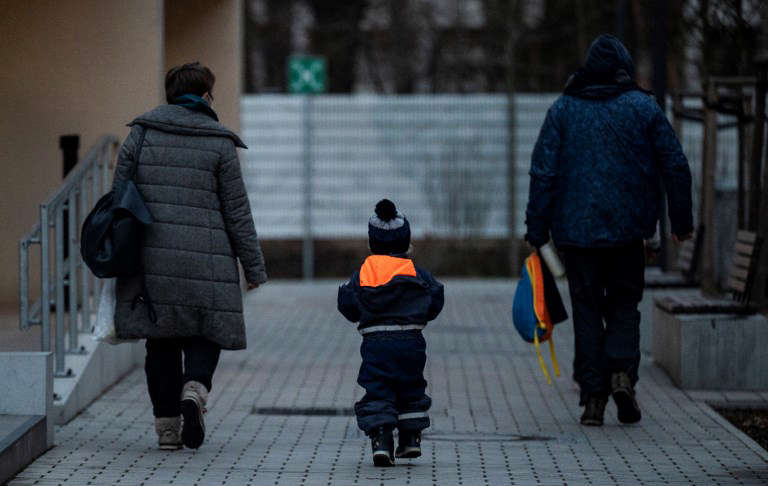The federal government has announced that cities and municipalities can place temporary constructions such as housing units and tents for the emergency shelter of Ukrainian refugees without completing the permit procedure.
With the number of refugees from Ukraine rapidly increasing on a daily basis, Belgium fears the temporary accommodation available in existing buildings will likely not meet the need for shelter places. In preparation, Environment Minister Zuhal Demir and the Department of Environment are working with municipalities to create additional spaces.
"Just as during the corona crisis, it is possible to realise additional capacity in no time at all without procedural thresholds, using temporary infrastructures, units or taking vacant buildings into use so that no precious time is lost," said Demir.
In the last three days, 699 Ukrainian refugees were registered in Brussels alone, of whom 247 people were in need of shelter, according to State Secretary for Migration Sammy Mahdi.
Tweet translation: "Today 313 Ukrainians registered in Brussels. Mainly women, children and elderly people. 58 in need of shelter. Part is still in Brussels, part has already left for one of the many solidary municipalities."
The authorities are now distributing a script to all local administrations that informs them of the possibilities of providing emergency shelter without permit procedures, which is possible in certain conditions as stated in the spatial planning regulations.
Related News
- ‘Like a nightmare, but worse’: two Ukrainian women on the run to Poland
- Molenbeek reception centre welcomes Ukrainian refugees
These have been adapted for several years to make them future-proof for possible war situations and associated flows of refugees, allowing them to set up shelters for up to three years without an environmental permit and without a permit for the temporary organisation of emergency accommodation.
Under this principle, only a notification is needed to place temporary housing containers or tents for emergency accommodation. A similar exemption was put in place for the creation of temporary vaccination centres.
Transforming existing building
This principle will also be enforced in existing buildings, meaning the government or an association can organise shelter for up to three years without an environmental permit.
One former care facility in the Brussels neighbourhood of Molenbeek-Saint-Jean has already been converted to a reception centre and has started welcoming Ukrainian refugees, where they will be housed while awaiting transfer to more long-term housing.
Meanwhile, more than 200 vacant assisted living homes will be made available to Ukrainian families, according to reports from De Morgen.
Normally these can only house people aged over 65, however, Flemish Welfare Minister Wouter Beke is looking to create an exception to this rule for Ukrainian refugees.
"We support the initiative that organisations are taking to accommodate people, and there should indeed be an exception for this, the umbrella organisations know that this is possible, as we did this last summer to house the homeless flood victims in Wallonia," Beke's spokesperson told The Brussels Times.
As of Friday, more than 15,000 housing spaces have been made available to Ukrainian refugees in Belgium after Mahdi launched the initiative #Plekvrij (Free Space) to encourage residents and municipalities to offer temporary shelter by making their homes or municipal buildings available for them.

